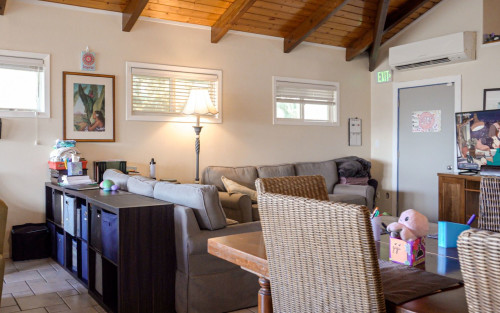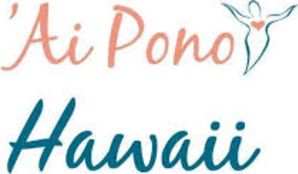






‘Ai Pono Hawaii
Treatment Focus
You can get treatment for eating disorders at this center, helping you navigate symptoms, build coping tools, and restore your physical health under expert care.
Primary Level of Care
Offering intensive care with 24/7 monitoring, residential treatment is typically 30 days and can cover multiple levels of care. Length can range from 14 to 90 days typically.
Claimed
Recovery.com has connected directly with this treatment provider to validate the information in their profile.
Treatment Focus
You can get treatment for eating disorders at this center, helping you navigate symptoms, build coping tools, and restore your physical health under expert care.
Primary Level of Care
Offering intensive care with 24/7 monitoring, residential treatment is typically 30 days and can cover multiple levels of care. Length can range from 14 to 90 days typically.
Provider's Policy
'Ai Pono Hawaii is In-network with most major insurances. Please contact their admissions team to hear more about your coverage.
‘Ai Pono Hawaii
‘Ai Pono Hawaii
About ‘Ai Pono Hawaii
‘Ai Pono has over 35 years of experience in the treatment of eating disorders and is the longest running eating disorder treatment program in Hawaii. ‘Ai Pono supports individuals ages 13+ and offers resident treatment (for women and girls only), partial hospitalization (PHP), and in-person intensive outpatient programming (IOP). In addition, ‘Ai Pono offers virtual IOP for those located within the state of Hawaii.
‘Ai Pono is located on the beautiful island of Maui, Hawaii. The traditional Japanese style house provides a sense of calmness and tranquility. In addition, the vaulted ceilings and open floor plan allow for an abundance of natural light. ‘Ai Pono’s idyllic location enables clients to participate in off-site excursions. Clients can enjoy trips to local beaches, sacred cultural sites such as nearby Iao Valley, the beautiful Kula lavender farm, prominent shopping destinations, and more. The facilit is located a short walk from the nearest beach and clients regularly participate in mindful walks to the beach.
‘Ai Pono focuses on the relationship between food and eating disorders by using a holistic approach to uncover and address the root of the eating disorder. The program views maladaptive eating behaviors as a symptom, and therefore necessarily addresses co-occurring issues that may impact the development and sustainment of eating disorders such as obsessive compulsive disorder (OCD), depression, anxiety, post traumatic stress disorder (PTSD), and body dysmorphia.
The women’s residential program includes psychotherapy sessions three times weekly and psychoeducational groups daily. Family involvement is encouraged and will be supported by skilled clinicians as the treatment plan outlines. All meals and snacks are considered therapeutic groups and include the support of team members. Meals are individualized to meet each client's specific dietary needs. Clients meet with a Registered Dietitian on a weekly basis to review their meal plan and receive nutritional therapy.
‘Ai Pono’s virtual IOP serves individuals of all genders ages 13+. This program is designed to meet the client where they are in their recovery process by providing flexible options for frequency of support dependent on a client’s progress.
They offer a variety of therapeutic modalities including dialectical behavior therapy (DBT), cognitive behavioral therapy (CBT), and internal family systems (IFS), as well as trauma-informed therapy, eye movement therapy (EDMR), and somatic therapy. Additionally, they offer holistic therapies such as gentle yoga, mindfulness, sound therapy, and nature therapy to provide clients with a well-rounded experience designed to heal the mind and the body.

Center Overview
Treatment Focus
You can get treatment for eating disorders at this center, helping you navigate symptoms, build coping tools, and restore your physical health under expert care.
Joint Commission Accredited
The Joint Commission accreditation is a voluntary, objective process that evaluates and accredits healthcare organizations (like treatment centers) based on performance standards designed to improve quality and safety for patients. To be accredited means the treatment center has been found to meet the Commission's standards for quality and safety in patient care.
Insurance Accepted
Cash Pay Rates
Estimated Cash Pay Rate
Center pricing can vary based on program and length of stay. Contact the center for more information. Recovery.com strives for price transparency so you can make an informed decision.
Levels of Care





Your Care Options
Specializations
Co-Occurring Disorders
A person with multiple mental health diagnoses, such as addiction and depression, has co-occurring disorders also called dual diagnosis.
Eating Disorders
An eating disorder is a long-term pattern of unhealthy behavior relating to food. Most people with eating disorders have a distorted self-image.
Trauma
Some traumatic events are so disturbing that they cause long-term mental health problems. Those ongoing issues can also be referred to as "trauma."
Who We Treat
Adolescents
Teens receive the treatment they need for mental health disorders and addiction, with the added support of educational and vocational services.
Men and Women
Men and women attend treatment for addiction in a co-ed setting, going to therapy groups together to share experiences, struggles, and successes.
Veterans
Patients who completed active military duty receive specialized treatment focused on trauma, grief, loss, and finding a new work-life balance.
Approaches
Evidence-Based
A combination of scientifically rooted therapies and treatments make up evidence-based care, defined by their measured and proven results.
Holistic
A non-medicinal, wellness-focused approach that aims to align the mind, body, and spirit for deep and lasting healing.
Gender-Specific
Separate treatment for men or women can create strong peer connections and remove barriers related to trauma, shame, and gender-specific nuances.
Therapies
1-on-1 Counseling
Patient and therapist meet 1-on-1 to work through difficult emotions and behavioral challenges in a personal, private setting.
Meditation & Mindfulness
A practiced state of mind that brings patients to the present. It allows them to become fully aware of themselves, their feelings, and the present moment.
Art Therapy
Visual art invites patients to examine the emotions within their work, focusing on the process of creativity and its gentle therapeutic power.
Eye Movement Therapy (EMDR)
Lateral, guided eye movements help reduce the emotional reactions of retelling and reprocessing trauma, allowing intense feelings to dissipate.
Family Therapy
Family therapy addresses group dynamics within a family system, with a focus on improving communication and interrupting unhealthy relationship patterns.
Life Skills
Teaching life skills like cooking, cleaning, clear communication, and even basic math provides a strong foundation for continued recovery.
Somatic Experiencing
This method treats emotional trauma stored in the body. A therapist helps patients work through the physical feelings associated with emotional pain.
Conditions We Treat
Anxiety
Anxiety is a common mental health condition that can include excessive worry, panic attacks, physical tension, and increased blood pressure.
Codependency
Codependency is a pattern of emotional dependence and controlling behavior. It's most common among people with addicted loved ones.
Depression
Symptoms of depression may include fatigue, a sense of numbness, and loss of interest in activities. This condition can range from mild to severe.
Eating Disorders
An eating disorder is a long-term pattern of unhealthy behavior relating to food. Most people with eating disorders have a distorted self-image.
Trauma
Some traumatic events are so disturbing that they cause long-term mental health problems. Those ongoing issues can also be referred to as "trauma."
Substances We Treat
Co-Occurring Disorders
A person with multiple mental health diagnoses, such as addiction and depression, has co-occurring disorders also called dual diagnosis.
Languages
Aftercare
Care Designed for Your Needs
Personal Amenities
Amenities
Special Considerations
Healthy Meals are provided
Great food meets great treatment, with providers serving healthy meals to restore nutrition, wellbeing, and health.






